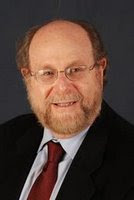 FROM RABBI RICHARD ADDRESS, UNION FOR REFORM JUDAISM: A few weeks ago, I found myself at a communal “religious” event, a “miracle” of sorts that has occurred only twice in my lifetime. I was standing at Broad and Ellsworth streets in Philadelphia, surrounded by (well, joining with) some 2 million fellow worshipers as we witnessed the parade celebrating the Phillies’ World Series victory. How curious that in the midst of such great social and economic friction and fear, so many people came together to celebrate. Then again, maybe it was not so curious after all, since the need for community and connection has never seemed more self-evident.
FROM RABBI RICHARD ADDRESS, UNION FOR REFORM JUDAISM: A few weeks ago, I found myself at a communal “religious” event, a “miracle” of sorts that has occurred only twice in my lifetime. I was standing at Broad and Ellsworth streets in Philadelphia, surrounded by (well, joining with) some 2 million fellow worshipers as we witnessed the parade celebrating the Phillies’ World Series victory. How curious that in the midst of such great social and economic friction and fear, so many people came together to celebrate. Then again, maybe it was not so curious after all, since the need for community and connection has never seemed more self-evident.
Last week, Stephen Post expressed his passionate belief in the power of giving—again, a reminder that being with and involved with people is a healing and transformative act. I am especially mindful of this in light of the current economic challenges. Perhaps there has never been a greater need for acts of communal support, altruism, and caring than now. I am concerned that many of our religious institutions may not see this as a major opportunity to really actualize their message of caring and support, though I know that within the Jewish community, a growing number of congregations are creating both educational programs and people-centered “in-reach” programs to provide a supportive ecology for their people. These includes loan programs, food banks, resource support, mental health support, and financial planning help.
One additional thought has emerged as well: Many people may, as a result of the current economic circumstances, feel isolated and alone. There are profound psycho-spiritual issues involved if one looses a job and is cut off from the therapeutic social context of work. Likewise, there may be older adults within a community whose “fixed” incomes have been damaged and their lifestyle may be compromised. This is the time for caring volunteers to make sure that we keep in contact with these people who may fall through the cracks. Calls, visits, and contacts need to be maintained to make sure people are not being forced to choose between a meal and a full dosage of their medication. Isolation, be it physical, economic, social, or spiritual leads to a slow and painful death of the soul.
As Jewish tradition reminds us, we are each responsible for the other. Personal interaction, friendship, and community involvement can help reduce anxiety and fear. This is a time when communities of faith need to speak messages of hope and support. Who knows what these encounters may create?
Monday, December 1, 2008
Financial Crisis Tests Communal Caring
Posted by Heather Wax at 8:36 AM
Labels: Expert Opinion
Subscribe to:
Post Comments (Atom)



0 comments:
Post a Comment